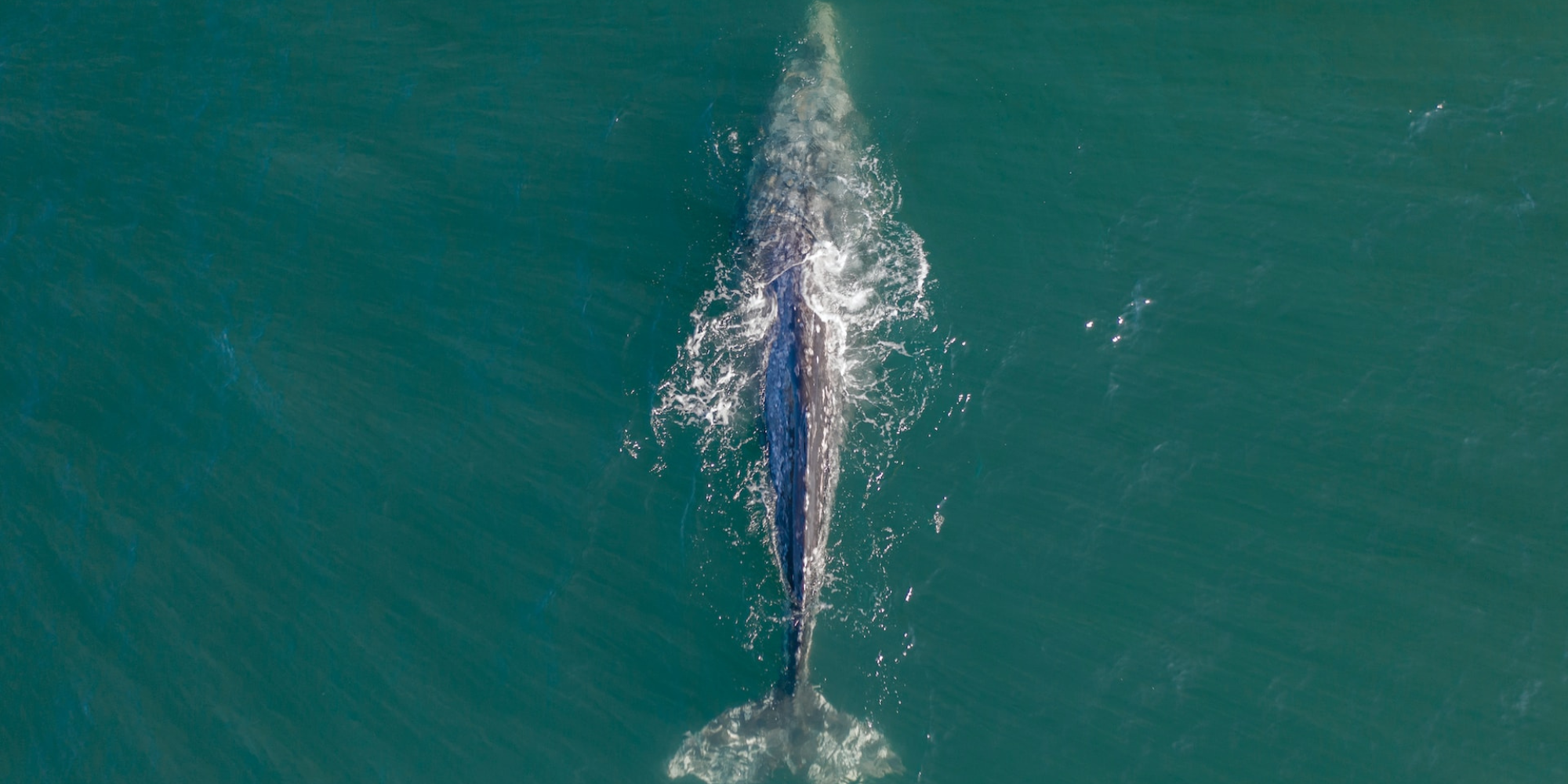“Whales have carried human cultures throughout Iñupiat history and Western industrialisation, and in a sense they have carried me through my life. They have brought me and my son a new beginning. I am woman, human, animal. I gave birth to my child in the water. We have sung to the whales. We have listened to their breaths. This book is what I heard.”
– Doreen Cunningham, Soundings: Journey in the Company of Whales
Doreen Cunningham, born in Wales, is an environmental engineer and has worked in climate research for the Natural Environment Research Council. She worked as a journalist for the BBC for 20 years, covering nature and environmental issues.
Her book, Soundings (2022), was shortlisted for the 2022 Eccles Centre and Hay Festival Writer’s Award.
In the book, Doreen describes following the grey whale migration route along the west coast of the continental United States with her two-year-old son in 2013.
Grey whales are baleen whales and feed on small crustaceans, such as glass shrimp. They migrate from Baja California on the western Pacific Ocean in Mexico a total of 20,000 kilometres to Point Hope, Alaska, and beyond into the Chukchi and Bering Seas.
They usually arrive in Baja California in December to give birth to their young before heading north along the west coast in the spring.
Cunningham ties this story together with a very personal account of her life and how the whales have been with her from an early age – from Greenpeace actions where she saw the images of whales, to the water birth of her son and how she asked the whales for help when complications arose.
She recounts the difficulties of her youth, growing up with a depressed mother and later encountering love but also difficult men, including her son’s father, who didn’t want the child at first and then dragged her into family court.
Although Cunningham won custody of her son, it was at the cost of all her savings.
The book illustrates once again how difficult life is for a young single mother and how much one relies on friends and family, something Cunningham emphasises repeatedly with gratitude as she recounts friends who helped her and her son travel or gave them a place to live when they had none.
Here, Cunningham likes to draw comparisons to grey whale mothers, their calves and the challenging journey they regularly face.
A research grant from the BBC allowed her to study climate change in Alaska and Canada before the birth of her son, and she eventually joined the Iñupiat in Utqiaġvik as part of the subsistence hunters, the Kaleak crew.
With great sensitivity, Cunningham describes the life-sustaining connections between the whales (in Utqiaġvik, these are mainly bowhead whales, which are also baleen whales and feed primarily on copepods) and the hunters in Alaska, and how even she, a vegetarian, switched to whale meat during the course of her stay.
She talks about the deep connection people have to all living things and how their legends and stories are tied to them.
Cunningham also uses the book to draw attention to the history of climate change and to highlight the hardships of Alaska’s First Nations and their history with European immigrants.
In her poignant book, Doreen Cunningham brings us closer to whales and their songs. She shares what she has heard and experienced, and the deep connection that exists for many people around the world to these unique creatures.

Why did we choose to feature this book in our WeWhale blog?
Well, Doreen Cunningham not only addresses the most critical issues of climate change, which we also want to address, but she also makes a very strong case for ocean noise pollution and what it means for whales and dolphins.
WeWhale is dedicated to solving this very problem by offering quiet, emission-free and respectful trips to see the marine mammals.
In this way, we ensure that parents can continue to take their children on a journey of discovery to these unique creatures without a guilty conscience or undue stress to the animals.
Our dream is to equip as many whale-watching sites as possible with our technology, so that perhaps one day we will be able to accompany the grey whales on their journey along the American West Coast.



